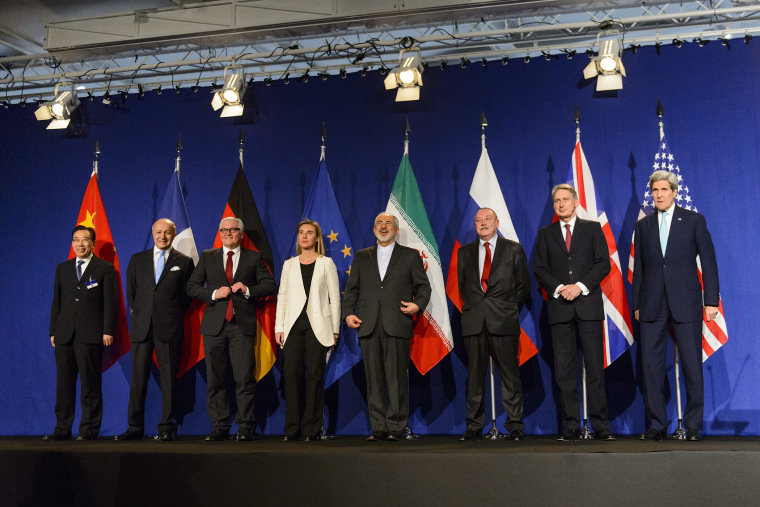As observers around the world digest the details of the preliminary nuclear agreement with Iran, one of the striking aspects of the reactions is how pleasantly surprised some proponents are. There's a large contingent of experts saying this morning, "I was ready to live with an unsatisfying deal, but this is a bigger win for America than I could have imagined.
Fred Kaplan, for example, said the framework "turns out to be far more detailed, quantitative, and restrictive than anyone had expected." Max Fisher called the blueprint "astonishingly good," adding that it's "almost astoundingly favorable to the United States" and "far better than expected."
It's against this background that congressional Republicans screamed bloody murder. "Neville Chamberlain got a better deal from Adolf Hitler," Sen. Mark Kirk (R-Ill.) said in a statement.
Obviously, these are not the comments of someone who wants to be taken seriously by adults. Indeed, I can't help but wonder how many GOP critics already had their furious press releases -pre-written, waiting for an agreement to be announced, so they could start whining before reading it.
But Jon Chait recently noticed the broader problem.
[T]he conservative case against the Iran deal is hard to take seriously because the right has made the same case against every major negotiation with an American adversary since World War II.
The right opposed every nonproliferation treaty with the Soviets. The right opposed Nixon going to China. The right condemned the SALT treaty and the START treaty.
As Peter Beinart explained a while back, Reagan and Clinton were both confronted with ugly Munich comparisons from far-right ideologues -- many of whom are literally the same people furious with Obama for curtailing Iran's nuclear ambitions now.
This is no small detail. In fact, it's one of the more important aspects of the entire debate.
If some policymakers oppose literally any agreement, without regard for policy or principle, solely out of reflex, then their concerns must be dismissed out of hand. There's ample room for a spirited debate on the merits, but for the discussion to have any integrity, it should be limited to those who take the disagreement itself seriously.
Their vitriol has no real meaning precisely because it's unrelated to any evidence or facts.
The right opposes a deal with Iran, not because of the provisions included in the preliminary agreement, but because it's a deal with Iran.
